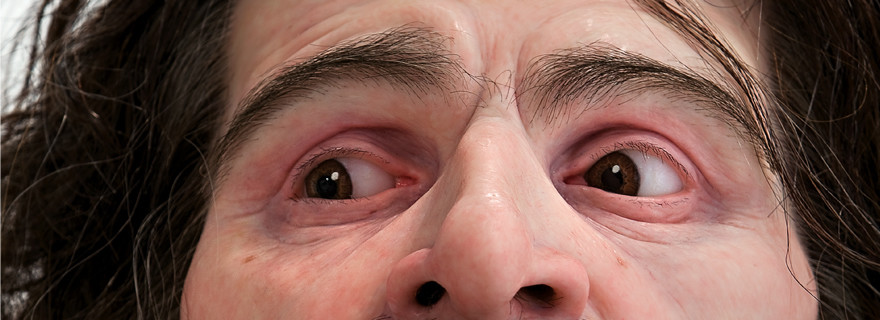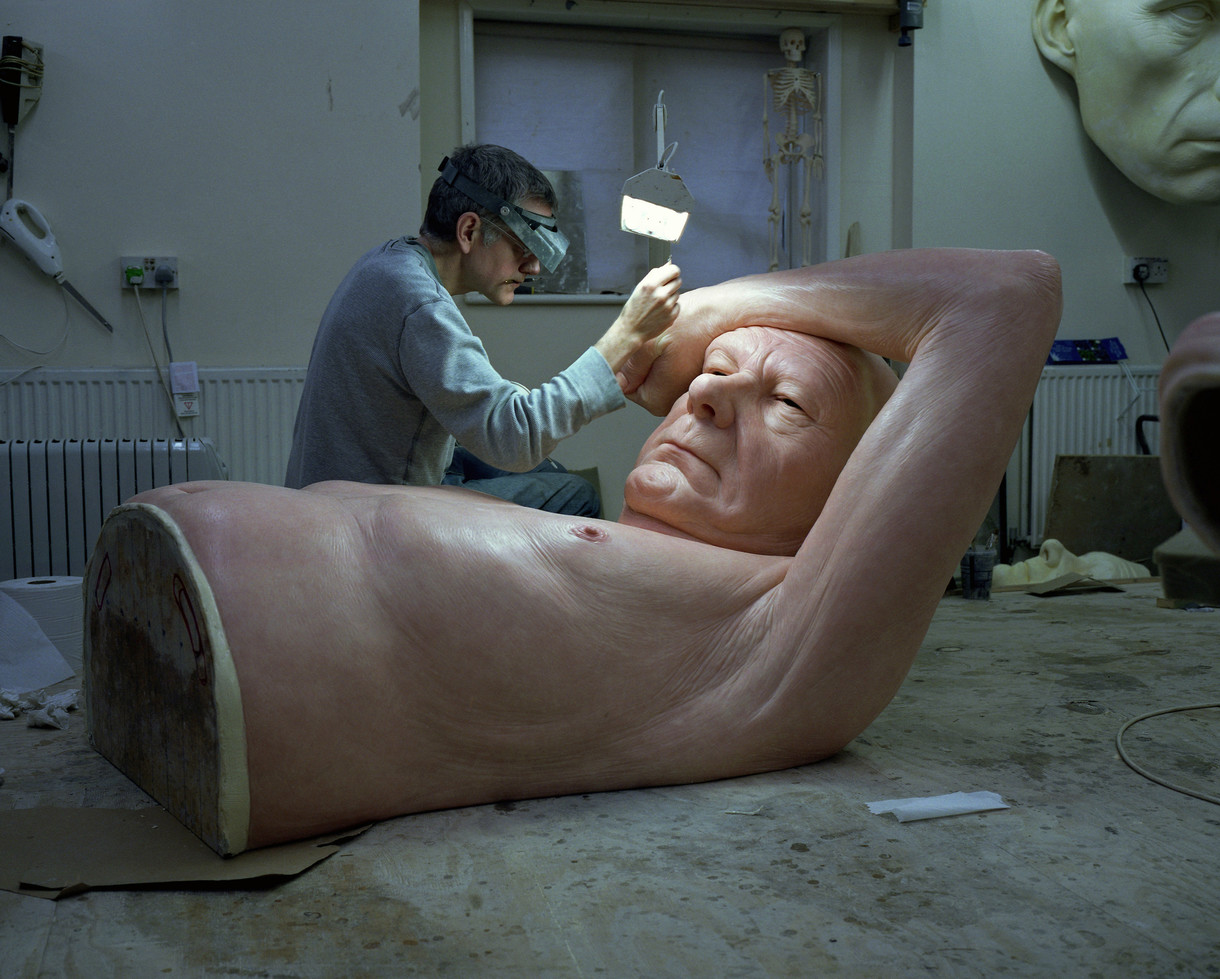Ron Mueck - Mask II
Ron Mueck - Mask II
Listen to a live recording of commentator and historian Richard Wolfe, author of New Zealand Portraits, discussing Ron Mueck's Mask II.
Related reading: Ron Mueck
Exhibition
Ron Mueck
2 October 2010 – 23 January 2011
Astounding in their realism and emotional power, Ron Mueck's works have made him one of the most renowned sculptors of our time. See them exclusively at Christchurch Art Gallery from 2 October.
Notes
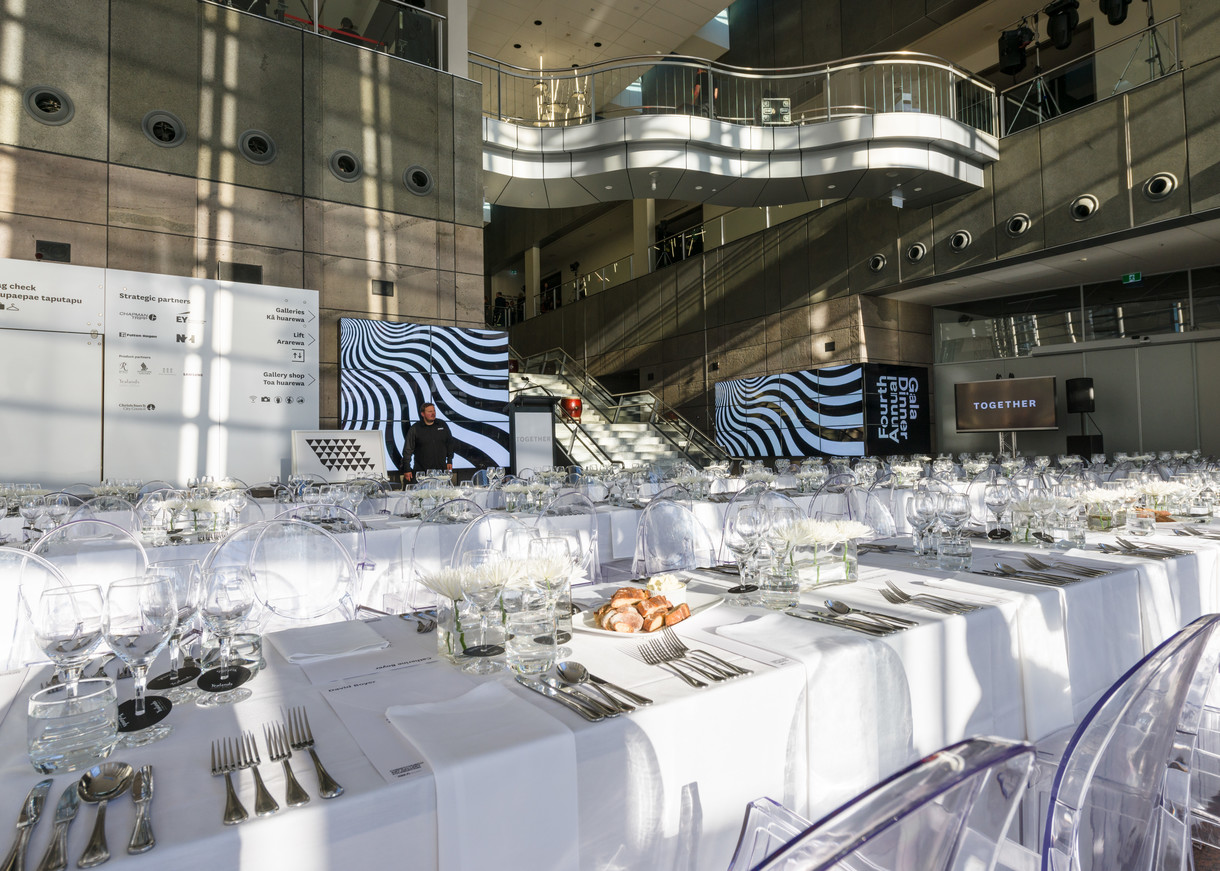
Christchurch Art Gallery Foundation's Fifth Annual Gala Dinner
London's hottest chefs are coming to town – and you're invited to dinner!
My Favourite
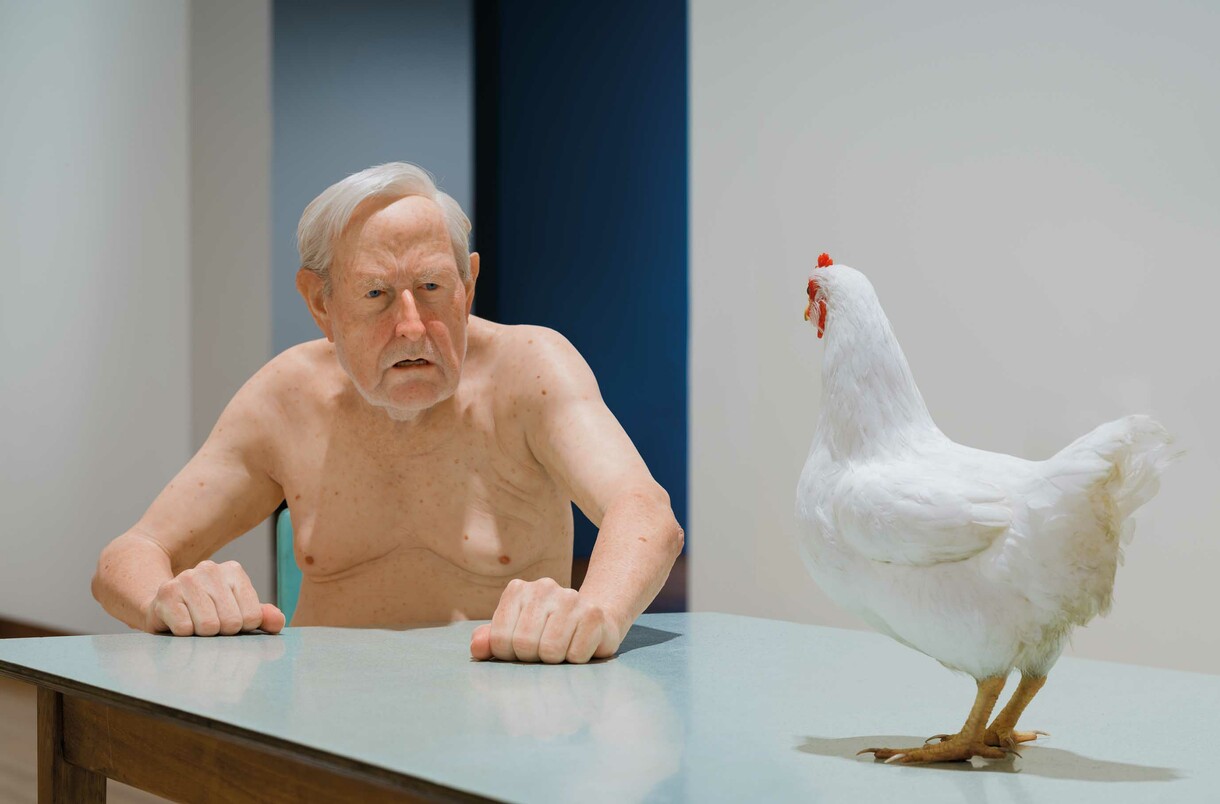
Ron Mueck: chicken/man
When I was growing up on our rural property in the South Wairarapa, my Dad was engaged in a constant war with his chickens. They would crap on the back deck, the side deck, and occasionally walk into the house and crap on the kitchen floor. He spent countless hours hosing down their muck and complaining about their every move, but still loved them enough to run a regular “name my chooks” competition on his Facebook page for a time.
Artist Profile
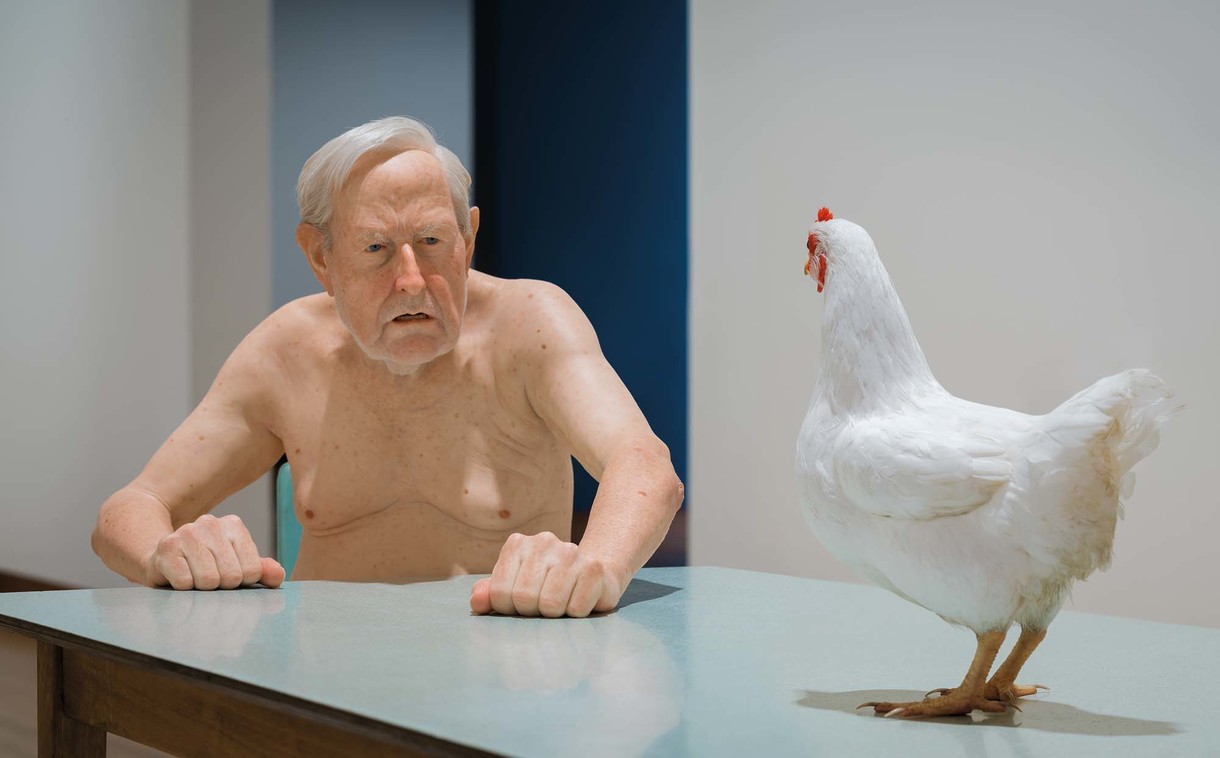
Studio Visit
I was in London last October and keen to visit Ron Mueck, but he wasn’t there: he’d gone down to Ventnor, on the Isle of Wight, where he has a studio. I spent my childhood in England, but I’d never been to the Isle of Wight. It’s in the English Channel; a Victorian retreat beloved by Tennyson, who wrote ‘The Charge of the Light Brigade’ here. It was also the home of the photographer Julia Margaret Cameron, who made portraits of many of Tennyson’s guests. (When Tennyson took the American poet Longfellow to Cameron’s house for a portrait, he reportedly warned: “You’ll have to do whatever she tells you. I’ll come back soon and see what’s left of you.”)
Director's Foreword
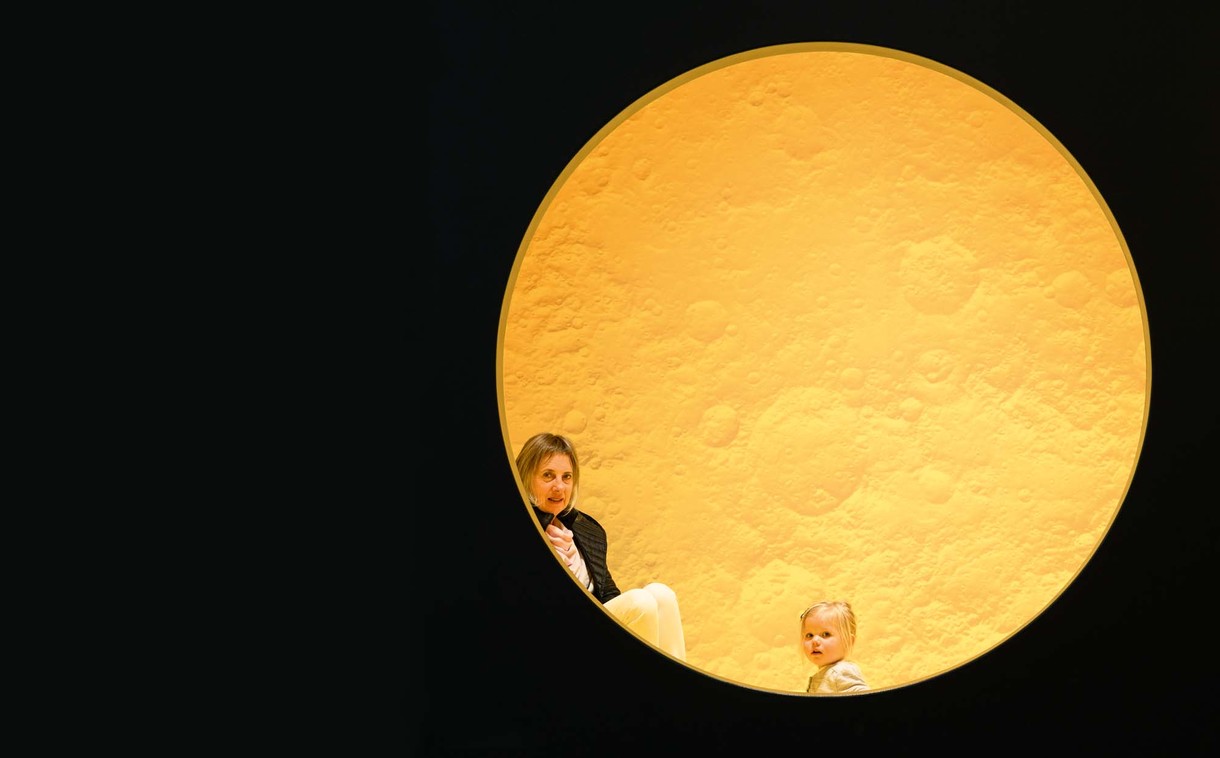
Director's Foreword
As I write this, I’m still smiling with pleasure and pride at the huge success of the Gallery Foundation’s fundraising drive for our own work by Ron Mueck. Wonderful in its own right, it’s amazing to finish the 2017 calendar year knowing a sculpture by Mueck is now on its way to join the other four ‘great works’ for Christchurch.
Article
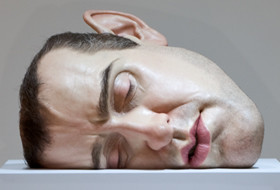
Confonting Portraiture
When it comes to creative encounters, there can be few that match the first sighting of a Ron Mueck sculpture. As with other landmark events, I suggest you are unlikely to forget exactly where you were when that formative experience took place.
Article
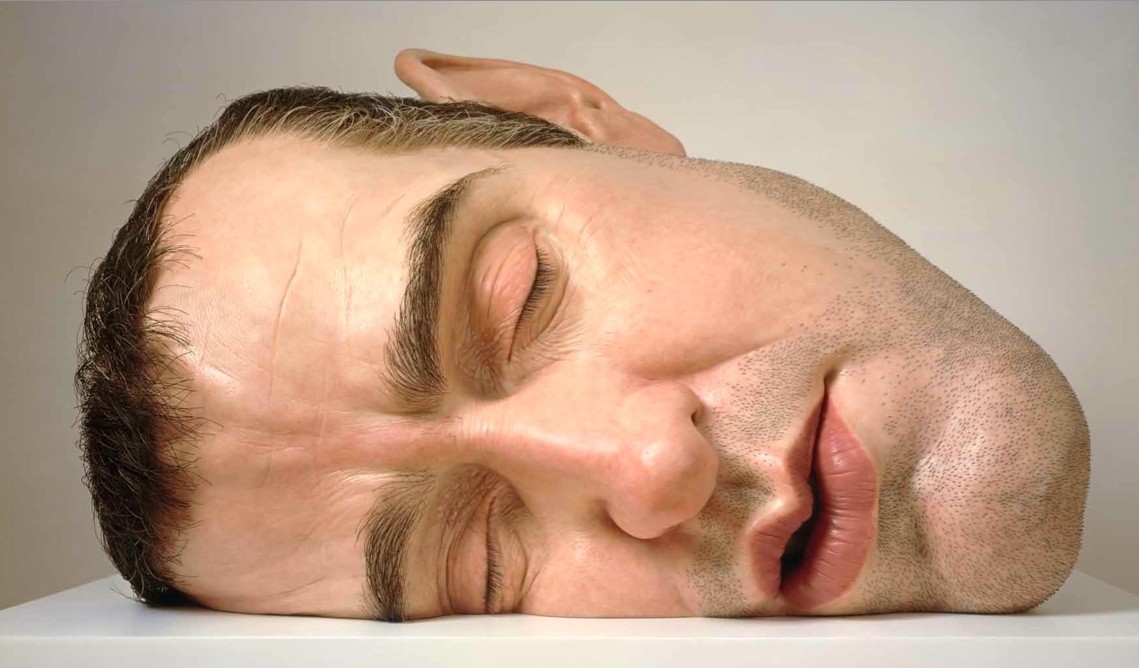
Shyness and sculpture
Reporters like to begin their stories about Ron Mueck by noting that he is famously media-shy. Since television and newspapers thrive on personality, celebrity and ‘direct access' to the stars, journalists clearly feel it necessary to explain to their audiences that they won't be hearing from the artist himself. Beyond this, however, not much more gets said about Mueck's reluctance to talk. It's treated as a minor difficulty, something to be mentioned in passing before moving on to the artworks. And for that reason, surely it's not the kind of thing I should be bringing up in an official essay...
But I have a suspicion there's more to it.
Commentary
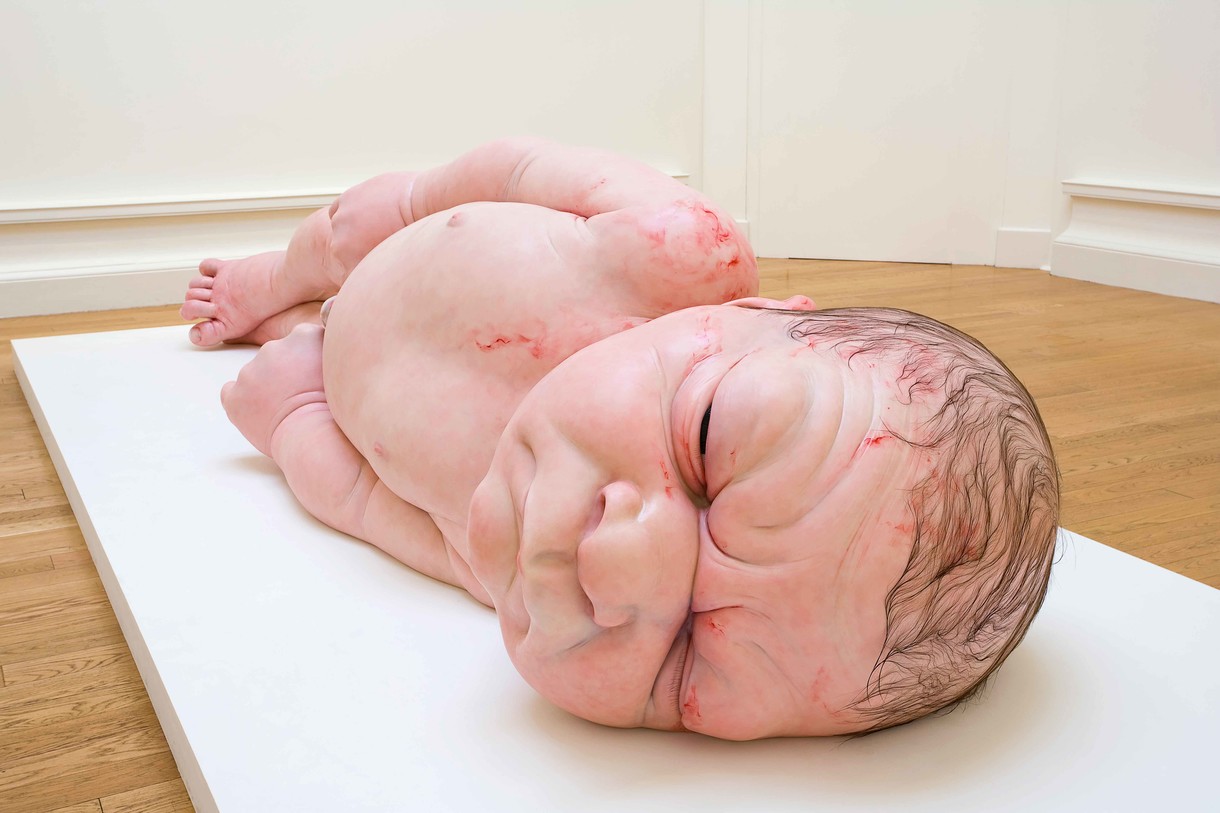
The Edge of Life
When we first saw Ron Mueck’s sculpture of A girl, my companion bent down. She stood back startled. ‘I thought I heard her cry,’ she said. Later she wept over what she had seen. Being moved so deeply was not a response to the shock of the artisanship which created such uncannily life-like figures. Rather it was to do with a different kind of shock – that of recognition of the depiction of an interior emotional world. She felt she might just have had an encounter with the human soul.
Interview
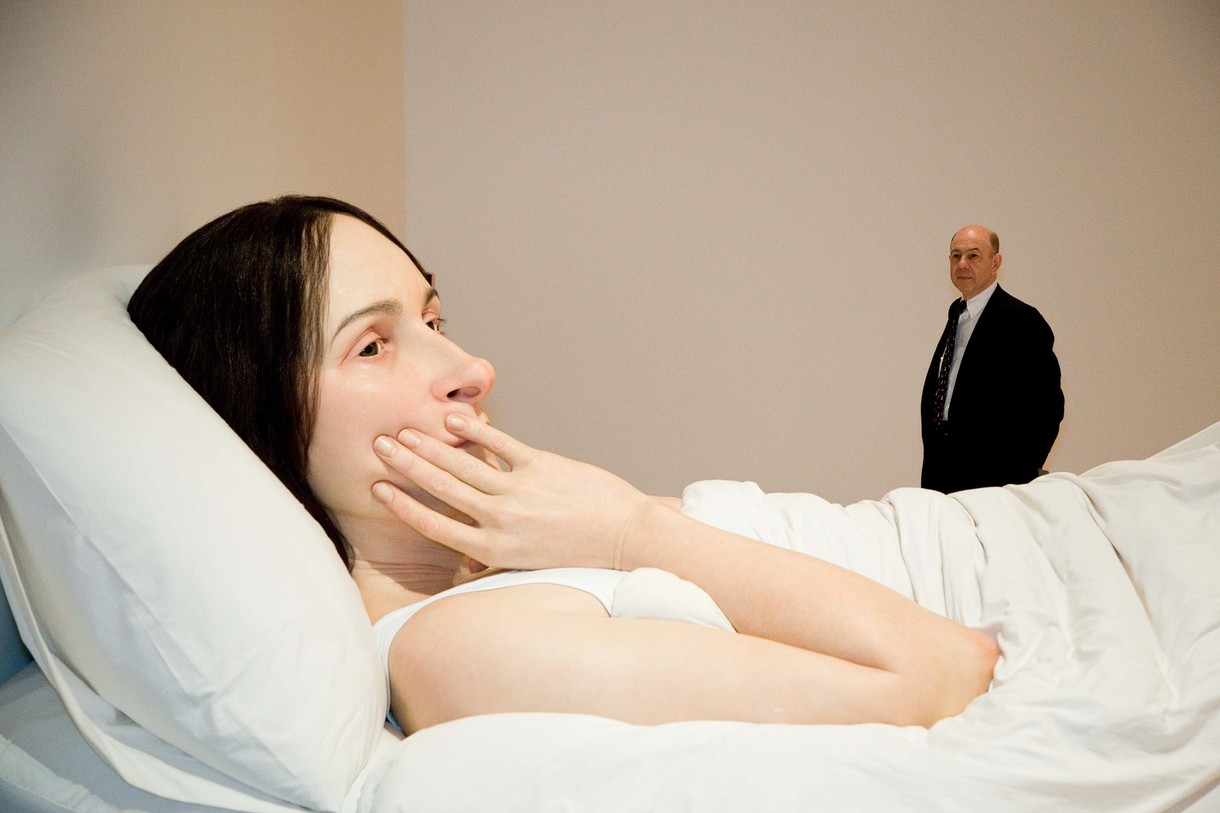
Inspiration and Consolation
In 2002, after two decades as one of the world’s most influential dealers of contemporary art, Anthony d’Offay closed the doors to his commercial gallery in Dering St., London. The years since, however, have been anything but quiet for him. In 2008, Tate and the National Galleries of Scotland acquired more than 700 works from d’Offay – a collection worth more than £125 million at the time, but acquired for the British public at its original cost price of around £27 million. Including works by Andy Warhol, Joseph Beuys, Gilbert and George, Damien Hirst, Jeff Koons, Agnes Martin and Anselm Kiefer, the line-up is remarkable. Just as remarkable is the way the works are now being presented, in the form of more than fifty ‘Artist Rooms’ which travel not just to high-profile metropolitan institutions like Tate but also to small and often underfunded regional galleries – so that viewers might encounter Diane Arbus in Nottingham, or Ed Ruscha in Inverness. In addition to his work curating the Artist Rooms, d’Offay has continued to work closely with just one artist from his Dering St. stable – Ron Mueck. Senior curator Justin Paton spoke with d’Offay about Artist Rooms, his own formative gallery-going experiences, and his thoughts on Ron Mueck and his sculptures.
Article
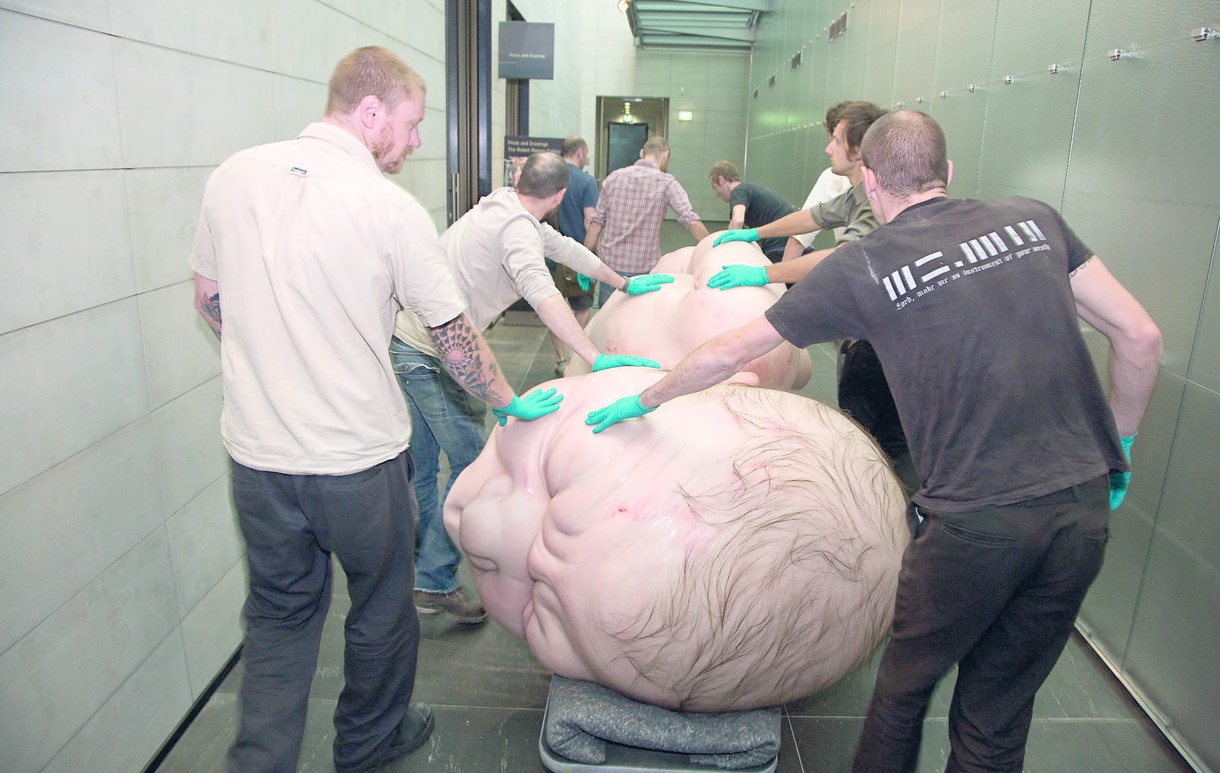
A Girl, In Transit
If you have ever travelled with a baby you will know that, in order to ensure a safe and pleasant trip, it's essential to plan and prepare in advance. But even then there are often hiccups to contend with on the way. It's really no different when travelling with the National Galleries of Scotland's baby, Ron Mueck's A girl – she just happens to be a little bigger...
